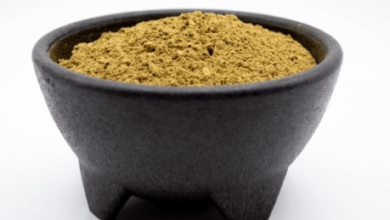3 Cannabinoids That Are Beneficial To Your Health

Scientists have identified over 100 types of cannabinoids in the cannabis plant. These substances bind to receptors in the human body to induce various health effects—and yes, that includes that ‘high’ sensation. Note that this number excludes synthetic ones.
As to their efficacy in managing conditions, the jury’s still out despite the growing collection of studies. The Food and Drugs Administration (FDA) currently doesn’t approve of using cannabis as a health remedy, but it has approved four drugs that contain certain cannabinoids. As such, it’s important to be careful when in the market for cannabis consumables.
That said, some cannabinoids may as well be a step closer to getting recognized for their health potential. Granted that later studies bring their potential to light and political views on cannabis become more favorable, here are cannabinoids with said potential.
- Cannabidiol (CBD)
Of the 100-plus known cannabinoids, there are two standouts: cannabidiol (CBD) and delta-9 tetrahydrocannabinol (THC). Despite their market shares being relatively equal, analysts view CBD to overtake THC in a few years due to increasing demand and recently-signed laws.
For starters, CBD is THC’s less psychoactive sibling. Whereas THC activates CB1 and CB2 receptors in the body, CBD blocks them, even when taken alongside THC. The lack of a high enables CBD users to return to their normal routine faster, whereas THC users must wait for several hours depending on their intake.
Recent studies paint a good picture of CBD and its role in promoting health. In fact, it’s already in clinical use right now as Epidiolex, formulated to treat seizures caused by Lennox-Gastaut or Dravet syndromes. It’s the only FDA-approved CBD-based drug as of this publication. Other benefits still under review include alleviating fibromyalgia pain and managing anxiety.
There’s no shortage of dispensaries like Hemponix and others selling pure CBD or CBD-laced consumables. Some products contain a mix of THC and CBD, although medical experts say the former shouldn’t pose a problem in small amounts relative to the latter.
- Cannabinol (CBN)
The rest of the cannabinoids on this list aren’t as widespread or thoroughly researched as CBD. One reason for this is that these cannabinoids don’t exist in large concentrations, which hinders further research on their potential. Their scarcity also makes them pricey.
Nevertheless, there’s a niche market for these cannabinoids, CBN being one example. Scientists call it a ‘metabolite,’ a byproduct of THC when it breaks down due to aging. Unlike CBD, this cannabinoid can induce psychoactive reactions at around 25% of THC’s effectiveness. This effect is only possible when taken in large amounts.
The limited studies on CBN suggest it has the potential to mitigate inflammatory responses to infection. The idea is that CBN binds to the CB2 receptor to lessen the production of cytokine and chemokine, proteins involved in triggering such responses. Aside from this, the cannabinoid has shown potential in managing insomnia, although some related studies have been disputed.
- Cannabigerol (CBG)
All cannabinoids come from cannabigerolic acid (CBGA). When the cannabis plant is exposed to heat or aging, it begins the process of decarboxylation or removing a carbon atom from a carbon chain. It results in the cannabinoids discussed earlier and more, along with carbon dioxide.
CBGA is present in most cannabis products, but the concentration hardly exceeds 1%. Even in full-spectrum products, it’s hard to be sure if they contain pure CBGA, as much of it may have been converted into other cannabinoids. In this case, it may be worth settling for a cannabinoid closest to it: CBG.
According to a study published in the Journal of Pharmacology and Experimental Therapeutics, CBG lies in the middle ground between THC and CBD. It’s more psychoactive than CBD but not as much as THC. Research over the past decade has suggested its application for managing gastrointestinal disease and metabolic syndrome, among others.
What About THC?
As mentioned earlier, THC is as popular as CBD in the cannabis market. Today’s strains contain as much as 30% of delta-9 THC, enough to produce consumables to be sold in dispensaries and beyond. In fact, the FDA had approved THC for therapeutic use before CBD, primarily as meds for treating nausea caused by chemotherapy.
However, authorities and medical professionals are concerned about its psychoactive properties. Besides euphoria, THC poses risks that range from memory problems to a weakened immune system (although this may benefit users with autoimmune diseases). It also doesn’t help that THC concentrations above 0.3% remain illegal at the federal level.
On the other hand, hemp-based THC like delta-8 and delta-10 enjoy partial legality, even though they don’t differ too much from delta-9 in their chemical makeup. There are also reports of some manufacturers adding harmful solvents and chemicals. Anyone considering THC should look at the label and know their state’s laws before buying.
Conclusion
Public opinion on cannabis has turned on its head, though research and policy haven’t kept up with the change. Given a few more years, perhaps people won’t have to worry about landing in hot water for consuming cannabinoid-laced products. In the meantime, it’s worth treading with caution and consulting your doctor before getting on the cannabinoid bandwagon.





